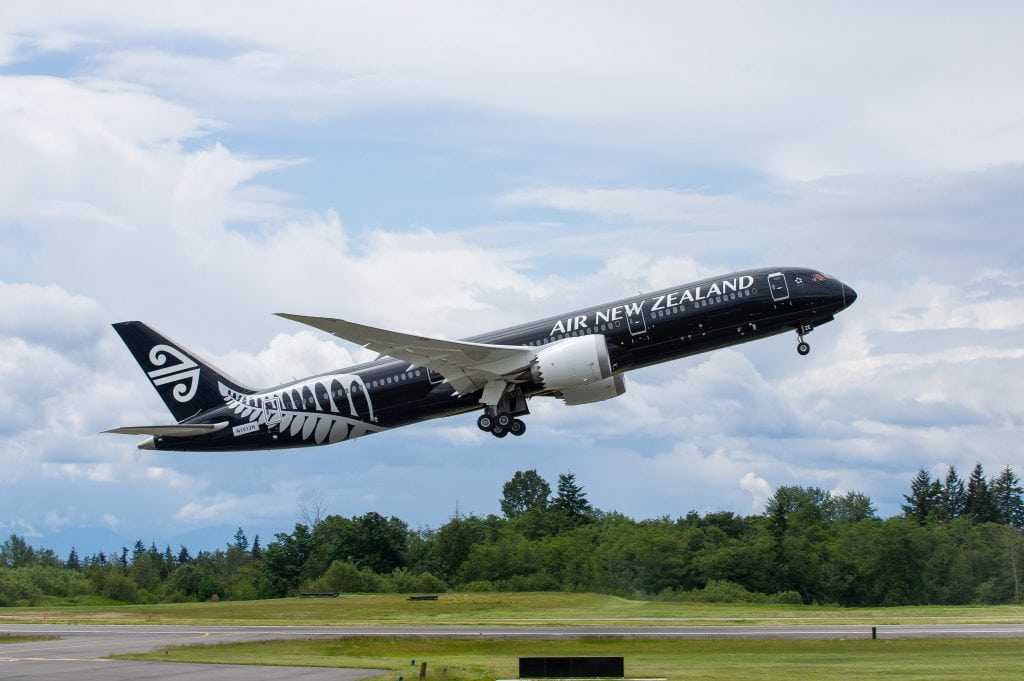Skift Take
As the Air New Zealand-Virgin Australia alliance on services across the Tasman Sea comes to an end, Virgin will not take the snub from its Kiwi counterpart lying down. It is already flagging improved services and better frequent flyer rewards and trying to block rival Qantas from working with its former ally.
The battle for air supremacy on Australia’s busiest route is intensifying after a dramatic shake-up of Australia-New Zealand alliances.
At stake is over 17 percent of the total international air market out of Australia, with the New Zealand service attracting more than 7 million passengers in the year to May 2018 – up from 6.8 million in the same period two years ago.
The turning point was the shock April divorce between Air New Zealand and Virgin Australia after seven years of partnership.
At the time, Air New Zealand Chief Revenue Officer Cam Wallace said “the time is now right for each airline to focus on its own objectives.”
The alliance officially ends in October and the subsequent Trans-Tasman game of musical chairs has seen Virgin as the likely loser, with Air New Zealand aligning itself with Qantas in a codeshare deal.
At the moment, the market is finely balanced. In May, Air New Zealand had almost 100,000 inbound passengers between the two countries. Virgin had 42,435. Meanwhile, Qantas had almost 70,000 passengers, and its low-cost stablemate Jetstar added another 25,771. Competition between the Air New Zealand/Virgin camp and the Qantas/Jetstar group was further heightened by Emirates’ withdrawal from this route on which it carried 33,276 in May 2016.
New Arrangements Come Into Place
Despite their differences (Air New Zealand is part of Star Alliance while Qantas is with One World), the two airlines are working on a reciprocal codeshare agreement that leverages the strengths of their domestic networks, making travel within Australia and New Zealand easier.
Under the codeshare, Qantas will add its code on up to 30 routes on Air New Zealand’s domestic network while Air New Zealand puts its initials on up to 85 routes on Qantas’ domestic network.
The plan also calls for coordination of check-in and handling at airports, delivering passenger benefits like shorter connection times, and opening up more onward flights for customers on each carrier’s domestic networks and faster journey times. The deal will also expand the lounge networks on both sides of the Tasman – a benefit for premium passengers and frequent flyers.
Qantas already operates domestically in New Zealand through its Jetstar New Zealand subsidiary, and the airline will continue to codeshare on all connecting flights.
But the deal is not guaranteed, with rival Virgin Australia seeking the intervention of Australia’s competition watchdog, the Australian Competition & Consumer Commission (ACCC).
Virgin Chief Executive John Borghetti told a Sydney aviation conference the codeshare “would be more worrisome for competition on the Tasman.” He said he had shared his concerns with regulators and would continue to push for a ruling.
Virgin Won’t Take a Back Seat
Beside flagging its concerns with authorities, Virgin has announced a number of measures aimed at clawing back marketshare on Australia’s most popular routes.
From Oct. 28, all Virgin Australia flights to major New Zealand destinations will include a substantial meal and drink, at least 23 kg of baggage and free WiFi. This sets the airline apart from Air New Zealand’s add-on charges for luggage and meals and also distinguishes the service from Qantas’ no-frills JetStar offering.
“Last year, 1.5 million Australians flew to New Zealand and we’re looking forward to making (the passengers’) trip across the ditch even more enjoyable with a meal and drink as well as WiFi so they can keep connected whilst in the sky,” said Rob Sharp, Virgin Australia Airlines Group Executive.
The airline has also boosted frequent flyer rewards on its trans-Tasman services, moving from a points-per-mile to a points-per-dollar model which Virgin claims will improve travelers’ earning power as well as status credits on the relatively short flights.
Virgin Australia also announced a codeshare arrangement with Singapore Airlines on flights between Melbourne and Wellington, starting after its Air New Zealand deal ends on 28 October. The flights, operated by Singapore Airlines, will operate four times per week and will allow Virgin Australia customers to seamlessly connect their travel and baggage onto other destinations and earn frequent flyer points.
Looking longer term, the Virgin group has not ruled out the possibility of deploying its low-cost Tigerair subsidiary on the price-sensitive routes. Quizzed about plans to expand Tigerair’s network, Borghetti told the Sydney conference: “We may, at some point, go on the Tasman. Not tomorrow, but maybe at some point.”
The Daily Newsletter
Our daily coverage of the global travel industry. Written by editors and analysts from across Skift’s brands.
Have a confidential tip for Skift? Get in touch
Tags: air new zealand, australia, gateway, qantas, virgin australia
